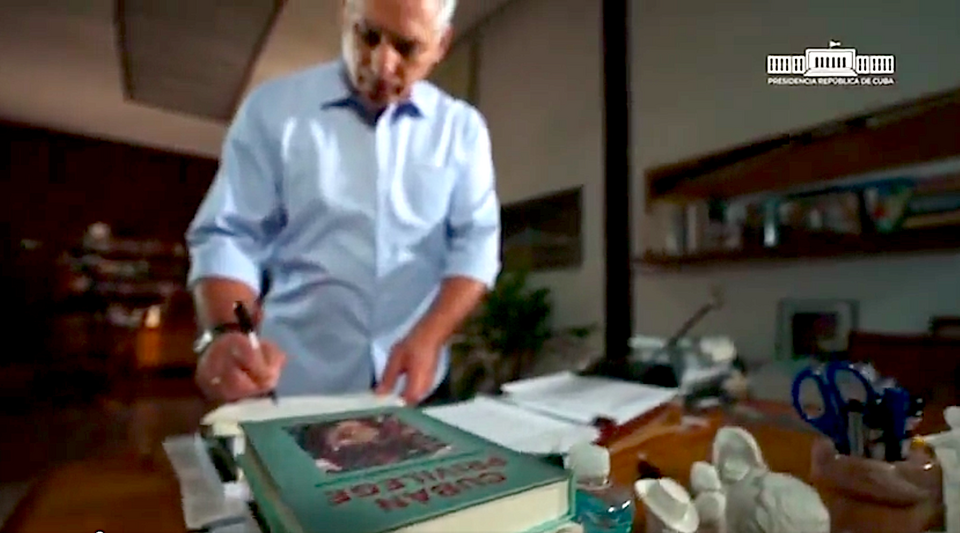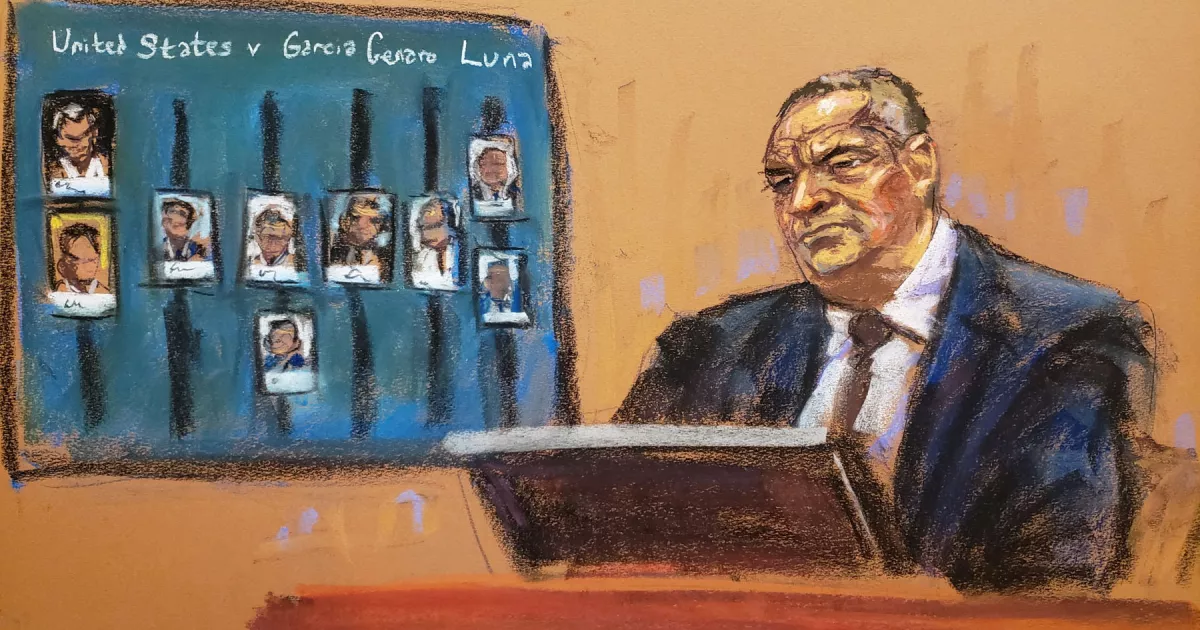Few Cubans will have noticed the title of the book that Miguel Díaz-Canel had on his desk this Sunday, before traveling to Argentina. During his message, broadcast on Cuban Television, the camera partially covered his office and, for a few seconds, focused on the cover of the controversial essay Cuban Privilege (Cambridge University Press, 2022), by American Susan Eckstein.
The presentation of Eckstein’s book in Miami motivated a bitter controversy at the Florida International University (FIU), in addition to a protest by Cuban civil society on the premises of that institution.
Cuban Privilegea socio-historical study on migration policies from the US to Cuba, this year saw two of its author’s suggestions fulfilled: that Cubans cross the border with Mexico be controlled and that certain benefits offered to Cubans be extended to other migrants – Venezuelans, Haitians and Nicaraguans.
Díaz-Canel’s propaganda intention is made even more evident by the fact that the president does not speak English, the language in which the volume is written.
That Díaz-Canel now places it in the foreground, on his desk and before leaving for an international meeting, offers a clear message about the opinion of the Cuban Government regarding Cuban Privilege. If at the time the official press avoided entering into the discussion – they hardly dedicated a propaganda segment to Eckstein on the program with edge– Now it is the government leadership that endorses and celebrates the book.
Díaz-Canel’s propaganda intention is made even more evident by the fact that the president does not speak English, the language in which the volume is written. His attempts to express himself in this language on international stages, during a recent tour of the Caribbean, caused numerous ridicule on social networks.
The context chosen by Díaz-Canel to allow himself to be recorded with Cuban Privilege he is also eloquent. Havana and Washington have come closer again to discuss, precisely, the issues handled by Eckstein in his essay: the need for both governments to regain control over the migratory phenomenon, establish their own rules and curb the influence of the Cuban opposition in the American exile.
It was this same exile who disapproved of Eckstein’s presentation in Miami and accused her of promoting “anti-Cuban sentiments,” in addition to stating that her book had been “dictated from Havana.” During the reply, at the FIU, the politician Orlando Gutiérrez-Boronat pointed out to Eckstein that Cuban Privilege it had been written from an “ideological prejudice” that discredited her: her sympathies for Havana.
With the book on his desk, Díaz-Canel returns the favor to Eckstein and tries to wash off his image as a boring and illiterate politician. To the title of doctor, the “casual” recordings and the shirts rolled up “Obama style”, Díaz-Canel now adds the image of the reading president.
________________________
Collaborate with our work:
The team of 14ymedio He is committed to doing serious journalism that reflects the reality of deep Cuba. Thank you for accompanying us on this long road. We invite you to continue supporting us, but this time becoming a member of our newspaper. Together we can continue transforming journalism in Cuba.








